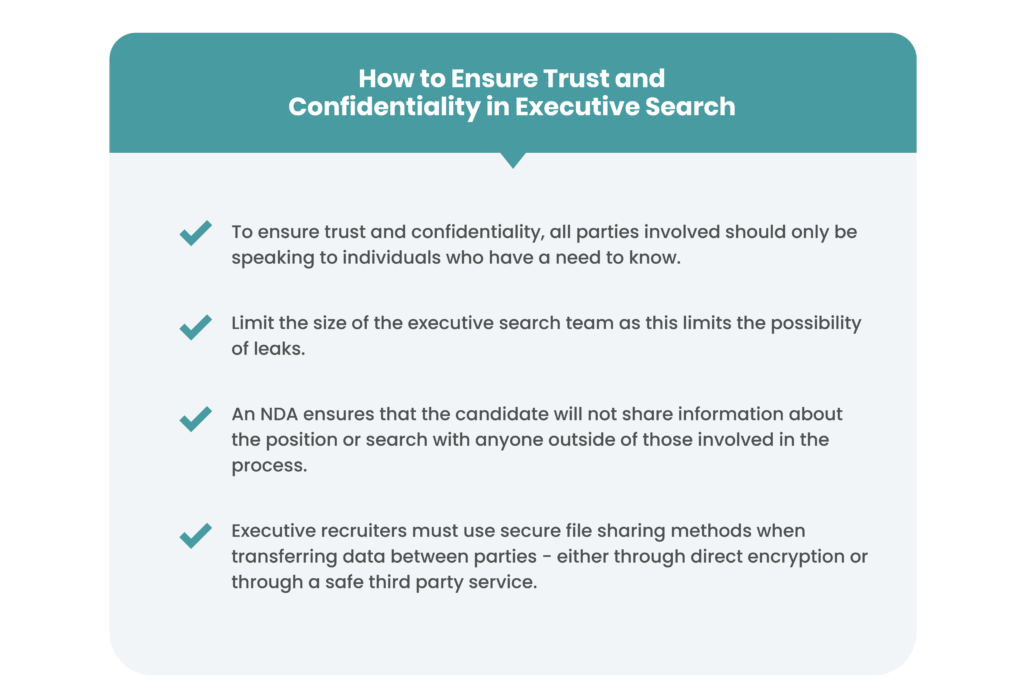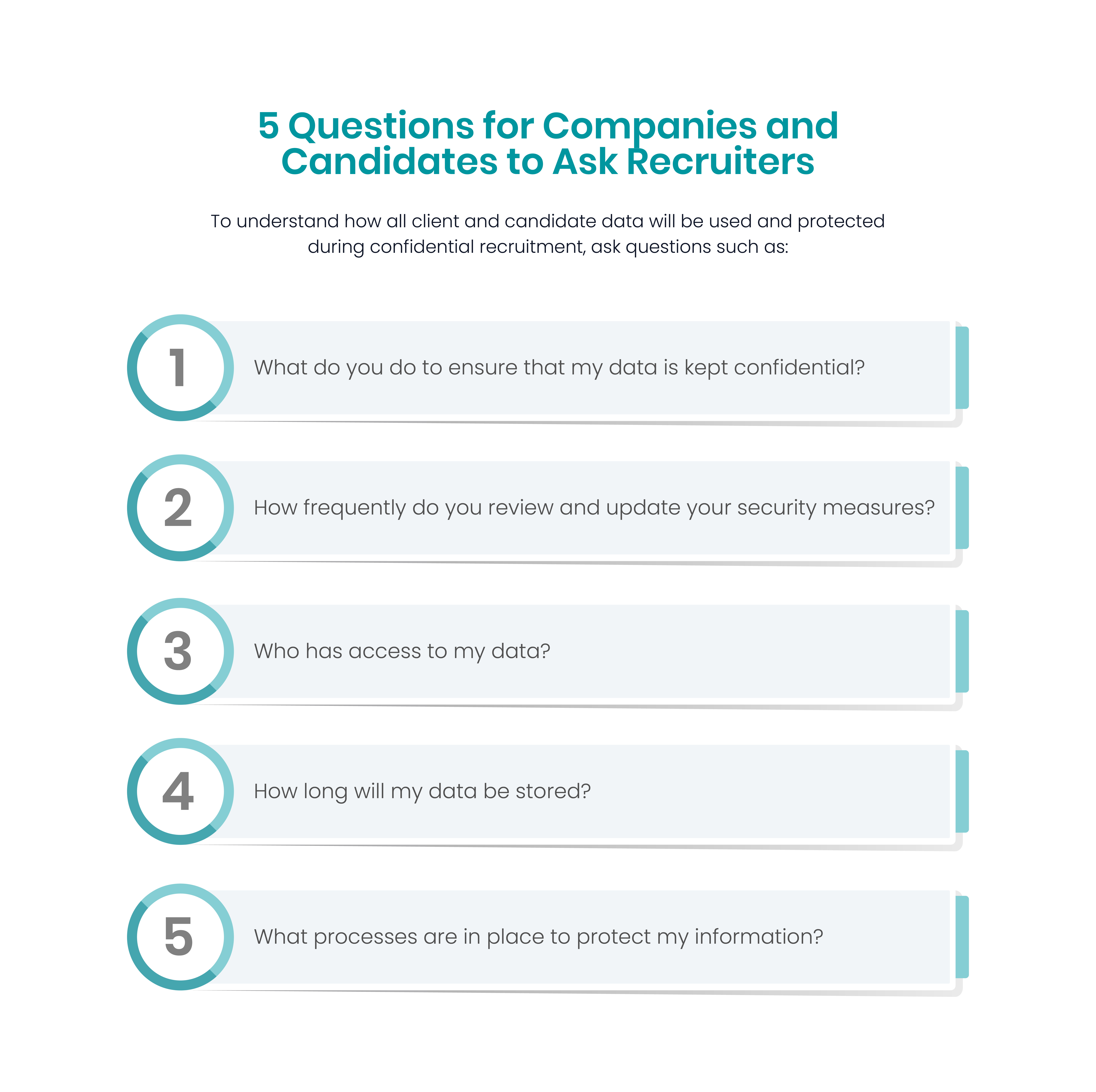With the ever-growing importance of data privacy, it’s no surprise that confidentiality is a major concern for companies conducting executive searches. But what steps can you take to ensure that your search stays confidential? In this blog article, we’ll explore some best practices for data security in confidential executive search.
Contents
Executive Search and Data Security
When it comes to executive search, data security and confidentiality are of the utmost importance as they are the foundation of trust for the entire process. A good executive search firm will have strict measures in place to ensure that your data and talent data is safe and secure.
“The demand for trust is amplified among professional services firms that deal with a client’s most sensitive information.”
How to Ensure Trust and Confidentiality in Executive Search
The most reliable and trusted executive search firms shape their recruitment process around building a relationship rooted in trust and confidentiality with their clients and candidates. Ensuring all data shared with them is safe and protected is a core part of this trust.

How to Ensure the Confidentiality of Candidate Data in Executive Search
In executive search, confidentiality is a top priority. Employers and executive search firms must have secure systems, processes, and procedures in place to ensure that any proprietary information or candidate data remains private and confidential.
Companies should use a trusted IT provider for all technology needs to guarantee that all data is secured. In addition, employees who have access to candidate data must sign an information non-disclosure agreement (NDA) to protect their employer from possible legal liability.
For candidates applying for executive positions, it’s important to be aware of the firm’s confidentiality policy before agreeing to provide personal information such as official transcripts and references from former employers.
An executive search firm should establish a privacy policy outlining its practices related to the collection, use, storage, and protection of candidate data so that both employers and candidates are kept informed throughout the recruitment process. By protecting the confidentiality of proprietary information and candidate data, executive search firms can ensure successful confidential searches with beneficial outcomes for all parties involved.
5 Questions for Companies and Candidates to Ask Recruiters
Whether as a senior leader of a company or as a leader looking for a new challenge with the help of an executive search firm, always inquire about the security of your data. It is essential to trust that the confidential recruitment firm is taking steps to prevent data leaks or other compromises of sensitive information.
“When partnering with an executive search […] firm as a client or when approached by one as a candidate,
trust is imperative.
Be sure you understand the firm’s reputation,
their commitment to quality and the security of your data.“
To understand how all client and candidate data will be used and protected during confidential recruitment, ask questions such as:

By asking these questions ahead of time, everyone involved in the talent recruitment process with an executive search firm can gain peace of mind in knowing that their data is being handled with security as its top priority.
Confidential Recruitment: Why Do Executive Recruiters Need to Keep Secrets?
“Recognizing why recruiters need to keep secrets — and some of the techniques we use for doing so — can be helpful for candidates, too. Some of the things we ask you to do […] may seem silly, but when a company is going to make a high-level executive change, confidentiality is a must.“
For executive recruiters, confidential recruitment is essential in providing high-quality service to both company and candidate. Having the best interest of both parties in mind, this is why there are a number of reasons why recruiters need to keep some secrets.
For companies, it is important to know that information about internal processes and plans is shared without ever turning into an advantage for their competition.
For candidates, revealing highly confidential information about themselves, their professional experience, and data such as compensation and salary expectations takes trust in the fact that their data is kept confidential.
Keeping such information secret also improves working relationships as confidentiality allows potential employees and companies to feel safe sharing sensitive material without fear of it being made public, gathered in a data breach, or shared outside the recruitment process.
Data Security and Confidentiality at Key Search
Confidentiality and data security are important parts of our professional responsibility at Key Search. In helping bring together client and candidate, we assume the role of a trusted expert for both parties.
Our executive search firm has strict measures in place that are listed in our privacy policy to ensure that all data is safe, secure, encrypted and never shared without approval. By taking these precautions, you can rest assured that our boutique executive search firm and any member of our team has your best interests at heart and is committed to protecting your data while helping you find the perfect candidate.

